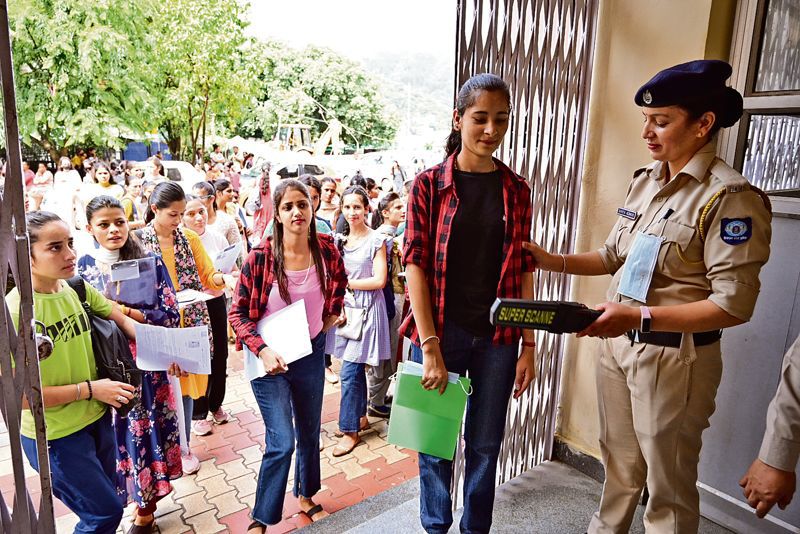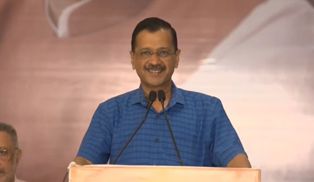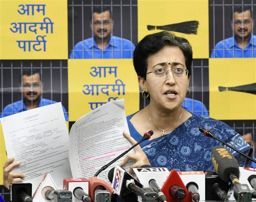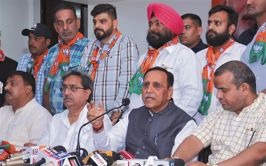
UNDER SCRUTINY: Paper leaks in high-stakes exams, where millions vie for a few seats, undermine the government’s credibility. - File photo for representation
Prem Chowdhry
Author and Former Academic, Delhi University
THE TRIBUNE DEBATE: Prevention of unfair means in exams
PARLIAMENT recently passed a stringent law to curb cheating in exams for government jobs and admission to public colleges; it received the President’s nod this week. The Public Examinations (Prevention of Unfair Means) Act, 2024, is aimed at preventing the use of ‘unfair means’ in public examinations and ensuring ‘greater transparency, fairness and credibility’. It carries a jail sentence of three to 10 years for those who facilitate cheating. Punishment for any person resorting to unfair means and offences can be three to five years in prison and a fine up to Rs 10 lakh, besides other penalties. If the convict fails to pay the fine, an additional punishment of imprisonment can be imposed. The Act provides for harsher punishment in cases of organised paper leaks. This ‘organised crime’ is defined as an unlawful activity by a group of persons colluding “to pursue or promote a shared interest for wrongful gains in respect of a public examination”.
The new law does not make it difficult to cheat; it just makes sure that those who get caught face stringent punishment.
The legislation lists at least 15 actions ‘for monetary or wrongful gains’ that amount to the use of unfair means in public examinations. These acts include the leak of a question paper or answer key or part thereof and collusion in such activities, accessing or taking possession of a question paper, tampering with answer sheets, providing the solution to one or more questions during a public examination and directly or indirectly assisting the candidate in a public examination. It also lists tampering with any document necessary for the shortlisting of candidates or finalising the merit or rank of a candidate, meddling with a computer system, the creation of a fake website and the conduct of a fake examination, issuance of fake admit cards or offering monetary gains as illegal acts. All offences have been declared non-bailable.
The law lists five public examination authorities: the Union Public Service Commission (UPSC), which conducts the Civil Services examination, defence services examinations and medical and engineering services examinations; the Staff Selection Commission, which recruits for non-technical and non-gazetted jobs in the Central Government; the Railway Recruitment Boards; the Institute of Banking Personnel Selection for nationalised banks and regional rural banks; and the National Testing Agency, which conducts examinations like the Common University Entrance Test. A recent media investigation found 41 documented cases of question paper leaks in job recruitment exams across 15 states over the last five years.
There has not been any specific Central law to deal with such unfair means. Therefore, a comprehensive pan-India legislation was considered necessary. The Act is aimed at effectively and legally deterring persons, organised groups or institutions that indulge in various unfair means and adversely impact the public examination system for monetary or wrongful gains. This law is to serve as a model for states to adopt to prevent criminal elements from disrupting state-level public examinations.
However, as instances of cheating and impersonation are already punishable under the existing criminal laws, critics argue that severe punishment alone won’t effectively address this issue. They point out that this law could prove to be ineffective because coaching centres collude with students to help them pass the entrance examination. In 2022, the Central Bureau of Investigation arrested a Russian hacker for reportedly breaching the entrance exam for admission to the prestigious Indian Institutes of Technology (IITs). The hacker allegedly worked for a coaching institute.
Cheating is prevalent in India because of the intensely competitive nature of college admission tests and government recruitment, where millions vie for a limited number of seats. Clearly, the need of the hour is to increase the number of educational institutes. The fees of private ones are beyond the paying capacity of most people. Yet, several government educational institutes have either been closed or merged. According to estimates, over a lakh schools have been shut or merged in recent years. Such anomalies must be corrected. Jobs must be created and made available for educated youngsters; otherwise, for the few existing government vacancies, the number of applicants would continue to run into lakhs. For example, for the UPSC exam held last year, over a million people applied for just over 1,000 vacancies. Likewise, the Joint Entrance Examination (JEE), which determines admissions to IITs, sees tens of thousands of applicants annually for just over 15,000 available seats. Is it not possible to have more IITs?
There are frequent reports of question paper leaks leading to the cancellation of exams. Moreover, a high quantum of punishment, as suggested in the Act, cannot be a solution for the rampant cheating. However, an effort towards preventing cheating can certainly be made by tightening security at examination centres. This may be possible with the use of mass surveillance digital technology to monitor the candidates. The new law does not make it difficult to cheat; it just makes sure that those caught face stringent punishment.
Moreover, such laws to curb cheating have not been successful. In response to exam manipulation, several states had enacted laws. For example, Rajasthan passed an anti-cheating law two years ago, while Andhra Pradesh and Uttar Pradesh have had such laws since the late 1990s. Last year, Gujarat and Uttarakhand also introduced legislation to prevent cheating. Despite the existence of these laws, cheating cases have persisted in these states, indicating their limited effectiveness and even enforcement. The question is: will the Central law bring about better results? Also, as there is no dearth of laws for such criminal activities, the problem clearly lies in their implementation. Will the government be able to implement it? The Act is welcome, but the concerns over its enforcement should be addressed.
Join Whatsapp Channel of The Tribune for latest updates.




























